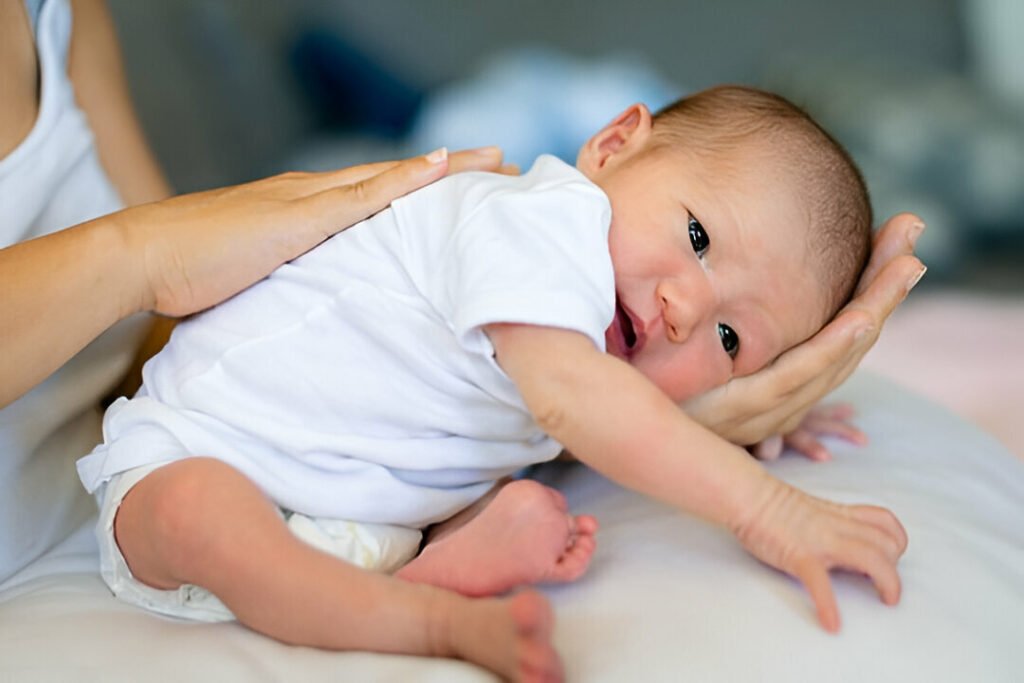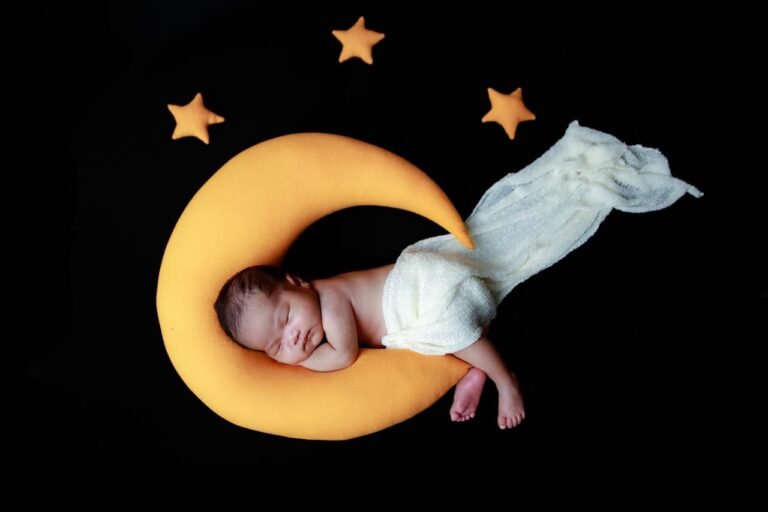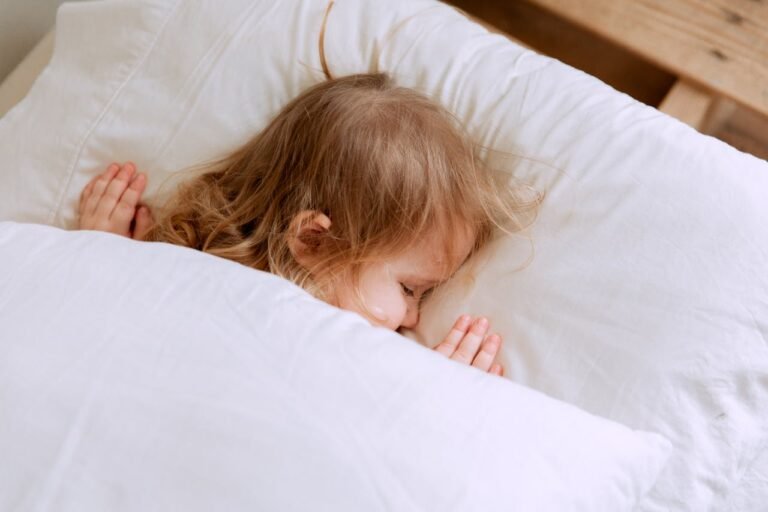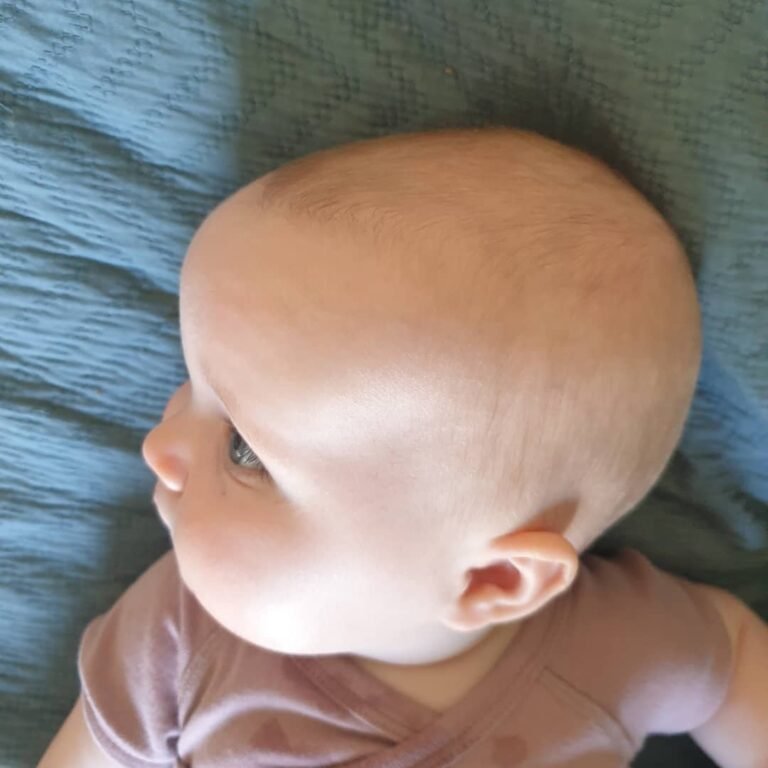How to Get Rid of Baby Hiccups – Simple & Safe Remedies

Baby hiccups can be both adorable and puzzling for new parents. You may wonder why your infant seems to hiccup so often and whether it’s something to worry about.
The good news? Baby hiccups are incredibly common and usually harmless. Understanding the causes, ways to prevent them, and remedies to stop them can help you handle these little “hics” with confidence.
This guide will walk you through everything you need to know about baby hiccups, from what causes them, to prevention tips, remedies, and when to seek medical advice.
What Causes Baby Hiccups?
Hiccups occur when the diaphragm, a muscle at the base of the lungs, contracts involuntarily. This contraction forces a quick closure of the vocal cords, which produces the characteristic “hic” sound. For babies, this is most often caused by:
1. Overfeeding
Overfeeding can cause a baby’s stomach to stretch and press against the diaphragm, leading to those familiar spasms.
2. Gulping Air
Babies sometimes swallow air while eating or crying, which can irritate their diaphragm and trigger hiccups.
3. Gastroesophageal Reflux Disease (GERD)
Though rare, persistent hiccups can be a symptom of GERD, a condition where stomach acid flows back into the esophagus. GERD-related hiccups are often accompanied by other symptoms like spitting up, coughing, or irritability during feedings.
Most of the time, hiccups are a normal part of babyhood and even serve a developmental purpose. Some studies suggest that hiccups may help regulate a baby’s breathing and strengthen their diaphragm.
How to Prevent Baby Hiccups

While you can’t prevent every bout of hiccups, adopting these simple practices can reduce their frequency:
1. Feed in an Upright Position
Keep your baby’s head elevated during feedings. This position helps minimize air swallowing and reduces the risk of the stomach pressing against the diaphragm.
2. Burp Frequently
Burp your baby regularly throughout feedings, not just at the end. This helps release trapped air before it causes hiccups. For example, if bottle-feeding, try to take a burp break after every 2-3 ounces. For breastfeeding, burp your baby before switching sides.
3. Avoid Overfeeding
Stick to appropriate portion sizes for your baby’s age and appetite. Overfeeding can stretch the stomach and contribute to hiccups.
4. Keep Baby Calm During Feedings
Feed your baby before they become excessively hungry or upset. Crying while waiting to eat can result in air being swallowed, which may increase the risk of hiccups.
Remedies to Stop Baby Hiccups
If your baby has already started hiccuping, here are some tried-and-true remedies to help stop them:
1. Offer a Pacifier
Sucking on a pacifier can help relax the diaphragm and stop the hiccups. It’s a simple and gentle solution that many parents swear by.
2. Gently Rock or Distract Your Baby
A change in focus can sometimes interrupt the hiccup cycle. Try gently rocking your baby or distracting them with a toy or soft music.
3. Try Gripe Water (With Caution)
Some parents use gripe water, an over-the-counter herbal remedy, to soothe baby hiccups. Gripe water often contains ingredients like ginger or chamomile, which may help relax the digestive system. However, always consult your pediatrician before using gripe water, as it’s not FDA-regulated and may not be suitable for babies under 6 months old.
4. Let the Hiccups Run Their Course
Hiccups often resolve on their own within 5-10 minutes. If your baby is not bothered by them, there’s no need to intervene.
When to Worry About Baby Hiccups
While baby hiccups are usually harmless, there are some cases when you should seek medical advice:
- Persistent Hiccups: If the hiccups last for several hours or occur frequently throughout the day.
- Signs of Discomfort: If your baby appears uncomfortable, cries excessively, or arches their back during hiccups, it could be a sign of an underlying issue like GERD.
- Breathing Issues: If hiccups are accompanied by breathing troubles, such as wheezing or blue lips, contact your doctor immediately.
- Beyond Infancy: If your baby continues to have frequent or prolonged hiccups after their first birthday, consult your pediatrician.
Trust your instincts as a parent. If anything about your baby’s hiccuping feels out of the ordinary, it’s always better to check with a healthcare professional.
Hiccups Are Normal, Not Nerve-Wracking
New parents often find themselves concerned over every little “hiccup”—literally and figuratively! But remember, baby hiccups are completely normal and usually nothing to worry about. By understanding the causes, taking preventative measures, and trying the remedies above, you can handle hiccups with ease.
And most importantly, stay calm. Babies often take their emotional cues from their parents, so your relaxed demeanor can help them stay comfortable, even during a bout of hiccups.
If you have further questions or concerns, don’t hesitate to reach out to your pediatrician for guidance.




